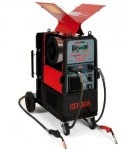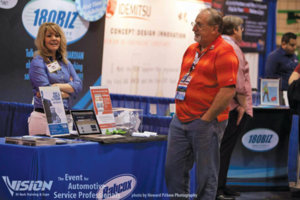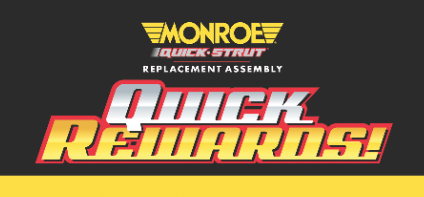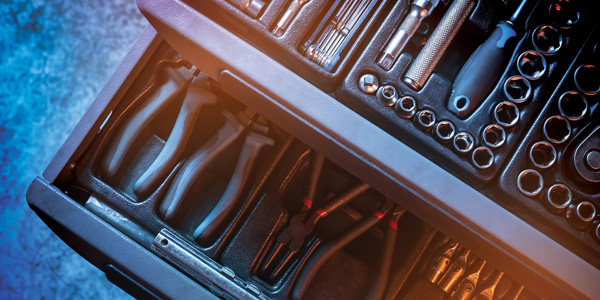A relative of mine recently purchased a Chinese motor scooter to save gas. The 150 cc scooter looks sharp, runs nice (so far) and gets almost 100 mpg. Best of all, it only cost him $1,140. But here’s the catch. It’s a no-name, barebones product. There is no dealer network, no customer service number to call and no website to go to if you have a problem. If you need repair or replacement parts, good luck, because they don’t exist. Ditto for service information or a repair manual. The parts are probably a knock-off of some brand-name scooter, but it’s unlikely they will interchange. In fact, it’s unlikely the parts on one shipment of scooters would even match or interchange with those on the next.
Don’t get me wrong. There are quality goods coming in from China. Many U.S companies closely monitor the quality control of the goods they import. But there are also a lot of import distributors who just buy stuff by the container load and unload it as fast as they can to make a quick buck. So unless you’re dealing with a reputable company or distributor, let the buyer beware.
Chinese-made auto parts and tools have been flooding the U.S. on over-sized container ships for years. Why? Because initially the parts were cheap. The average factory worker in China earns about $1 an hour. This compares to $14 – $26 per hour for workers (before benefits) who still have jobs in the dwindling number of manufacturing jobs that have not yet left the U.S.
The “good” part of this is that low-cost products boost corporate profits. Take Chinese-made connecting rods, for example. The made-in-China forgings reportedly cost as little as $10 a piece when purchased in bulk quantities, which is a fraction of the cost of forgings that are made here. If the rods retail for $600 to $800 for a set of eight, that’s a hefty profit margin for the distributor. It’s the same story with Chinese-made crankshafts, brake rotors, fuel pumps, you-name-it.
Lower manufacturing costs also mean lower prices for the end users. That’s good new for consumers who are trying to stretch their ever-shrinking dollars these days.
The “bad” side to buying low-priced goods from China is that it has forced many U.S manufacturers to either source their parts from China, or go out of business. That’s bad news for the 1.8 million U.S. workers who have lost their jobs since 2001 to Chinese imports, and the 40,000 U.S. factories that have probably closed their doors forever since 1998. States like Michigan, Ohio, Illinois, California, New York, Texas, Georgia and North Carolina have lost tens of thousands of jobs that are probably never coming back — because the aftermarket has been swamped by low-cost goods from China.
Buying everything from China at bargain basement prices may seem like a smart move for Corporate America that has been doing everything it can to rid itself of “legacy” plants with older (expensive) workers, decent health care plans and retirement benefits. But what are we getting in return? A lot of cheap stuff that does not have the same quality, durability or workmanship as what it replaced. I’ve seen a lot of really bad stuff from China.
If you’re manufacturing rubber dog doodoo, the quality of the rubber that goes into the mold probably doesn’t matter as long as the finished product appears to be authentic. But if you are manufacturing engine parts, filters, belts, hoses, gaskets, seals, tools, brake parts or even valve stems, the quality of the materials is important. In fact, it is essential!
One U.S. distributor of made-in-China tire valve stems recently issued a recall for millions of valve stems because the rubber wasn’t made right. The valve stems, which cost only a few cents to manufacture, but typically retail for $3 to $5 each, are cracking and causing a sudden loss of tire pressure. The valve stem failures have caused accidents and at least one rollover death. Who says quality doesn’t matter? In 2007, our trade deficit with China has soared to $256 billion, according to U.S. Census Bureau data. Add that to the $82.7 billion trade deficit we have with Japan, and the $127.4 billion deficit we have with OPEC (the Organization of Petroleum Exporting Countries), and it’s obvious we are not only sending all of our manufacturing jobs overseas, but our money as well.
China is supposedly making great strides in the area of Intellectual Property Rights (IPR). Many Chinese factories that were once cranking out knock-offs of famous brand-name goods have supposedly gone “legit” and are now making officially licensed products. Others, however, continue to thumb their nose at the notion of IPR and knock-off U.S. brands.
At this year’s AAPEX show in Las Vegas, officials from the trade show as well as various U.S. manufacturers will be cruising the lower level where hundreds of importers showcase their wares. Undoubtedly, they will discover goods that are being hawked as the genuine thing that are not. They will also find goods that infringe on U.S. patents and trademarks. Unfortunately, they don’t look for goods made with substandard materials or poor workmanship. I guess they assume U.S. buyers are smart enough not to buy on price alone.
I think they assumed wrong. Price seems to be the only thing that matters these days.








